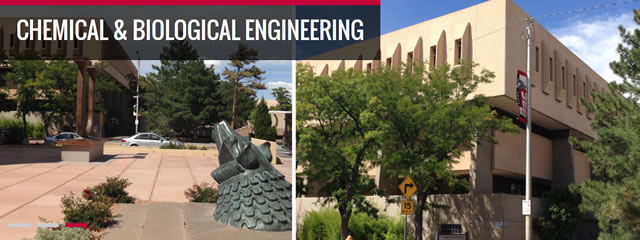
Chemical and Biological Engineering ETDs
Publication Date
Summer 12-14-2024
Abstract
The use of exogenous nucleic acid technologies to modulate aberrant protein expression resulting from genetic mutations is a promising therapeutic approach for the treatment of diseases such as cancer. The promise of nucleic-based therapeutics is dependent on the development of platforms that effectively protect nucleic acids from nuclease degradation and deliver the nucleic acids to specific intracellular locations (nucleus or cytosol) of target cells. The application of nanotechnology for development of nucleic acid-based nanomedicines is poised to revolutionize the clinical landscape of cancer. In this dissertation, I demonstrated the rational design, synthesis and evaluation of a lipid coated mesoporous silica nanoparticle (LC-MSN) system for delivery of various nucleic acid cargoes within cancer therapeutic applications. I demonstrated that the modular nature of the LC-MSN system lends itself to be tailored to accommodate different nucleic acid cargoes (CRISPR plasmid or ribonucleic protein, siRNA and mRNA) and can be applied to different cancer types (cervical, lung and advanced prostate). Additionally, I demonstrated the development of a divalent metal cation mediated nucleic acid entrapment strategy within the porous silica matrix which effectively loads nucleic acids as well as provides a mechanism for evasion of biological barriers (endosomal escape) which inhibit effective delivery of nucleic acids. Within this work, great care is taken to ensure that the development and design of the LC-MSN is informed through physiologically relevant in vitro, ex ovo, and in vivo analysis. Overall, I have demonstrated that the structural and chemical versatility of the mesoporous silica core and lipid coating along with framework dissolution-assisted or metal cation mediated cargo delivery open new prospects towards safe and effective delivery of a variety of nucleic acid cargoes for a variety of cancer types. Based on the tailorable nature of the LC-MSN technology, I envision that systems based on this work can be applied to other cancer types as well as other diseases resulting from genetic mutations.
Keywords
Nanotechnology, Nanomedicine, Gene Therapy, Nucleic Acid Delivery
Document Type
Dissertation
Language
English
Degree Name
Chemical Engineering
Level of Degree
Doctoral
Department Name
Chemical and Biological Engineering
First Committee Member (Chair)
Nick Carroll
Second Committee Member
Jeff Brinker
Third Committee Member
Achraf Noureddine
Fourth Committee Member
Xiang Xue
Recommended Citation
Maestas-Olguin, Angelea M.. "Rational Design of Nanoparticles for Overcoming Barriers of Nucleic Acid Delivery: Applications in Cancer Therapeutics." (2024). https://digitalrepository.unm.edu/cbe_etds/118
